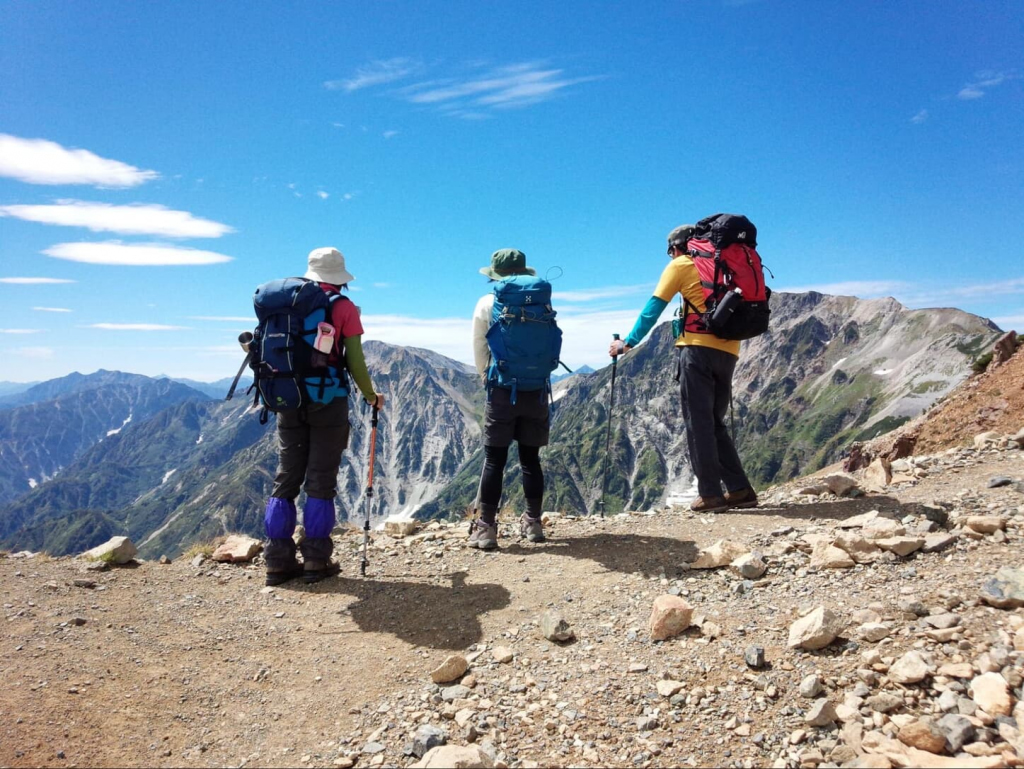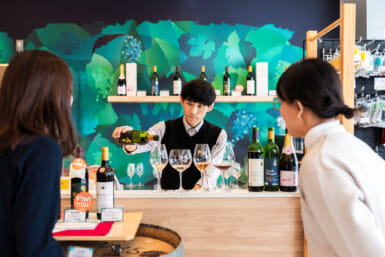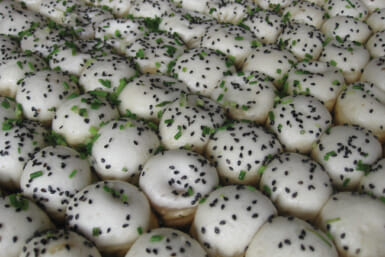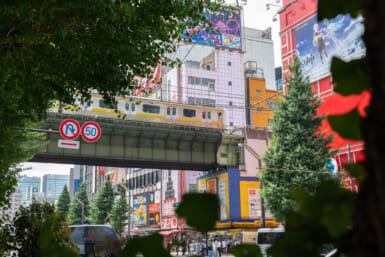Itoigawa is located in the westernmost part of Niigata Prefecture, with Nagano to the south and Toyama to the west. Taking the shinkansen, the trip from Tokyo is a comfortable two hours. The town boasts a land rich in geological and natural diversity, with mountain ranges and beaches part of the natural landscape. The highest point in the region reaches nearly 3,000 meters above sea level, leaving the town with plenty of resources. The area’s significant geological, natural and cultural heritage earned it an official designation as a UNESCO Global Geopark. Nowadays, the region offers a comfortable environment for residents with urban fatigue and, crucially, a supportive community.
Home to Mountains, Sea and Onsen
Along the prefectural borders of Toyama and Nagano are Niigata’s highest mountains, including Korenge, Amakazari and Hiuchi, all of which appeared in mountaineer Hisaya Fukada’s One Hundred Mountains of Japan.
Itoigawa is also home to long stretches of beaches. During the peak season, these are decorated with colorful parasols. The waters are crystal clear, making it a great low-key destination for summer getaways. Itoigawa, then, is a town where you get your sunbathing and hiking fix without straying too far.

In the winter, there are still spots to let your body soak. Hot springs are numerous in the area, ranging from hidden mountain springs to old-fashioned baths located in local ryokan (traditional Japanese inn). You can also pop by one of the area’s many resort hotels. Each location has its charms; there’s a place for every type of person and every mood.
The Heart of Japan’s Jade Culture
Itoigawa is also Japan’s largest source of jade, both in terms of quality and quantity. It is also the birthplace of the world’s oldest jade culture. Mentioned in the Man’yoshu, the oldest existing anthology of poetry in Japan, jade played a major role in the spiritual lives of Japanese people at the time.
Legend has it that in ancient times, the area was called Nunagawa and was ruled by Nunakawa Hime, an empress of great beauty and wisdom. In the Kojiki (an important book recording ceremonies, customs and magical rituals of ancient Japan) there are references to a love story between her and Yachihoko-no-kami, who traveled all the way from Izumo, Shimane Prefecture to ask Nunakawa Hime to marry him. To this day, this story continues to fascinate people.

Itoigawa flourished, first in prehistoric Japan as a center of trade and then in feudal Japan as a major transportation hub. The town developed at an intersection of the Kaga Kaido and Matsumoto Kaido roads, becoming an important stop for the Kitamae trading ships.
Interview: Life in Itoigawa
This Niigata town has also earned a reputation as a haven for people wanting to embrace a slow and communal lifestyle.
Yasuko and Shota Okumura, who took over a local hot spring inn in 2018, live with their family of three in the Konoura district of rural Itoigawa. The couple previously lived and worked in Tokyo but felt a calling to nature and held a deep-seated desire to dissociate from city life.

“In Tokyo, I did some promotion for an outdoor clothing brand,” says Yasuko. “I had the chance to visit the countryside. At the time, I mainly enjoyed camping during the peak season. I didn’t know anything about life in the countryside outside of that. I thought, ‘it’s a bit lame.’ In 2011, when the Tohoku earthquake and tsunami struck, I realized I had no motivation in life, and I began to want something to live for.”
Yasuko was headstrong and never shied away from doing what she set her heart to do, even after tying the knot. Her husband, Shota, who couldn’t afford to leave his job in Tokyo, remained in the city when Yasuko first left for Niigata. Though she first lived in Tsunan at an acquaintance’s home, she settled on Itoigawa because the town and its residents felt welcoming.
“There are many things that confuse people when they settle anywhere in Japan,” she continues. “The person in charge of newcomers [in Itoigawa] was kind enough to give me advice and I was able to move into the town with ease. Maybe it was just a coincidence, but I felt that many residents were interested in meeting new residents. People actively approached me and I quickly felt at home. I also made an effort to get involved.”

Her husband later joined her in Niigata, and together the couple came to take over the Yutorikan Inn. The facility, which is owned by the town but run by the community, had a shortage of staff and volunteers then. “When I learned about the situation,” says Yasuko, “I thought there might be something I could do. I started a voluntary organization called Waves and Motherships and took over the operation in 2018.”
Over the last five or so years, the Okumura family has grown to be a part of the community in Itoigawa.

Itoigawa is actively offering support to residents of Japan who are looking to relocate – all while changing the image of rural Japan. The Japanese countryside is often perceived as secluded and aloof, but the Okumura family and the community they are part of are proof that rural Japanese towns can grow to be powerful, independent and welcoming.
For more information on Itoigawa and municipality services, give the town a call at 025 552-1511 or email your questions and inquiries at [email protected]
Sponsored Post
Updated On December 26, 2022









